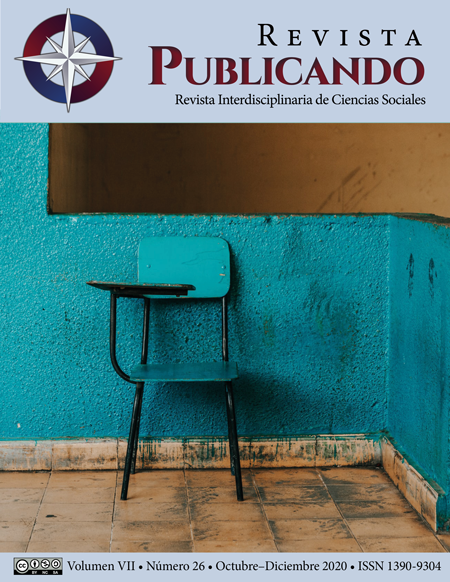Abstract
The result of the experience lived in the implementation of a training project used in the transversal and transdisciplinary training of the professional of the sciences of physical culture at the Autonomous University of Chihuahua, Mexico is shared. In this research, the training project assumes the competency-based approach, to be implemented in a process of classroom intervention. The methodology used represents an approach to action research where teachers, previously selected, they delved, designed, evaluated, and socialized on the results. The main techniques were field diaries, participatory observation, and fundamentally video recording and transverse and transdisciplinary reflective dialogue. Among the results, the positive evaluation that teachers have on the model stands out, highlighting with it a greater preparation regarding the didactic planning process of their subject, also the training-intervention-systematization of your teaching practice. It is concluded that this research promotes and facilitates the transversal and transdisciplinary planning of the course through its function in real situations and created as a teaching updating strategy that enhances academic productivity and gives meaning to a more motivated, thoughtful and transformative teaching.
References
Rojas, W. C. (2019). La investigación cualitativa en educación. Horizonte de la Ciencia, 9 (17). Recuperado de http://revistas.uncp.edu.pe/index.php/horizontedelaciencia/article/view/510/381
Guzmán, I., Marín, R. & Inciarte, A. (2014). Innovar para transformar la docencia universitaria. Un modelo para la formación por competencias. Ediciones Astrodata. Maracaibo: Venezuela.
Guzmán Ibarra, I., Marín Uribe, R., Zesati Pereyra, G. I. & Breach Velducea, R. M. (2012). Desarrollar y evaluar competencias docentes: estrategias para una práctica reflexiva. Voces y silencios. Revista Latinoamericana de Educación, 3 (1), 22-40. Recuperado de https://revistas.uniandes.edu.co/doi/pdf/10.18175/vys3.1.2012.02
Soto Valenzuela, M. (2015). Experiencias docentes en intervención psicomotriz para el logro de competencias en preescolar (Doctoral dissertation, Universidad Autónoma de Nuevo León). http://eprints.uanl.mx/13795/1/1080238145.pdf
Cuéllar, A. I. & Alonso, M. I. (2010) ¿Cómo afrontar la evaluación del aprendizaje colaborativo? Una propuesta valorando el proceso, el contenido y el producto de la actividad grupal/How evaluate the collaborative learning? A proposal valuing the process, content and the product of group interactivity. Revista General de Información y Documentación, 20 (2010), 221-241.
Ávalos, B. (2002). Formación docente: reflexiones, debates, desafíos e innovaciones. Perspectivas, 32 (3), 1-9. http://www.ibe.unesco.org/en/resources?search_api_views_fulltext=%22Prospects%20ProspectsOpenFiles%20pr123ofs
Vaillant, D. (2007). Mejorando la formación y el desarrollo profesional docente en Latinoamérica. Revista Pensamiento Educativo, 41 (2), 207-222. http://www.pensamientoeducativo.uc.cl/files/journals/2/articles/424/public/424-941-1-PB.pdf
Pedraja-Rejas, L. M., Araneda-Guirriman, C. A., Rodríguez-Ponce, E. R. & Rodríguez-Ponce, J. J. (2012). Calidad en la formación inicial docente: evidencia empírica en las universidades chilenas. Formación universitaria, 5 (4), 15-26. Recuperado de: https://scielo.conicyt.cl/scielo.php?pid=S0718-50062012000400003&script=sci_arttext

This work is licensed under a Creative Commons Attribution-NonCommercial-ShareAlike 4.0 International License.
Copyright (c) 2020 Karla Juanita Montes Mata, Carlos Raúl Almanza Rodríguez, Mariana Cossío Ponce de León, Gustavo Álvarez Mendoza


